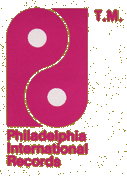
MFSB Love Is The Message ...1975
Patti Labelle Music is My Way of Life...1979
King Britt When The Funk Hits The Fan ...1998
Philly soul was primary a producer's medium, and Vince Montana Jr. took it to its logical conclusion with the Salsoul sound, driven by Earl Young's four on the floor, deep house drum style ["Bad Luck"]
Philly Soul early seventies
Philly soul was one of the most popular forms of soul music in the early '70s. Building on the steady groove of Hi Records and Stax/Volt singles, Philly soul added sweeping strings, seductive horns and lush arrangements to the deep rhythms. As a result, it was much smoother -- even slicker -- than the deep soul of the late '60s, but the vocals remained as soulful as any previous form of R&B. Philly soul was primary a producer's medium, as
Kenny Gamble & Leon Huff and Thom Bell [not to forget
Vince Montana Jr.] created the instrumental textures that came to distinguish the genre.
That isn't to short change the vocalists, since the Spinners, the O'Jays, Harold Melvin & the Blue Notes, and the
Stylistics were among fine soul singers with distinctive voices, but the sonic elements that made Philly Soul
distinctive were the creation of the producers. Gamble & Huff worked with the Delfonics, Archie Bell, Harold
Melvin & the Blue Notes, and the O'Jays; Bell produced the Spinners and the Stylistics, among others. The
highly-produced sound of Philly Soul paved the way for the studio constructions of disco and urban
contemporary R&B.
Philly soul classics like "Love Train" provided a blueprint for disco, and that style evolved from the dancers'
tastes -- for example, the way Don Cornelius kept asking Kenny Gamble and Leon Huff to make the tempo faster and faster when they recorded the Soul Train television theme song that eventually became "TSOP (The Sound Of Philadelphia)." Appropriately, The Ritchie Family's "The Best Disco In Town" medley was recorded at Philadelphia Sigma Sound Studios with many of the musicians who'd inspired the songs excerpted
in the piece. (How busy was MFSB
?) Several of the same players in the same studio played on the original track of "Bad Luck" by Harold Melvin And The Blue Notes, the bit of it included in "Best Disco," and the
full-length instrumental cover by the Atlanta Disco Band [ha!] on Ariola.)
Brian Chin in liner notes of '70s Disco Queens'on Rhino records:
In French Canadian teen beauty France Joli's "Come To Me," there's a bit of small-world irony too: Even after disco dated the Philadelphia sound, producers continued to look for the Philly magic, and it's the Sweethearts of Sigma, Barbara Ingram, Carla Benson, and Evette Benton, who are singing backup. "Come To Me," in turn, with a vocal cameo by producer/writer Tony Green, represents the generational turning point between traditional Fire Island disco and the more progressive "dance music" of the '80s.